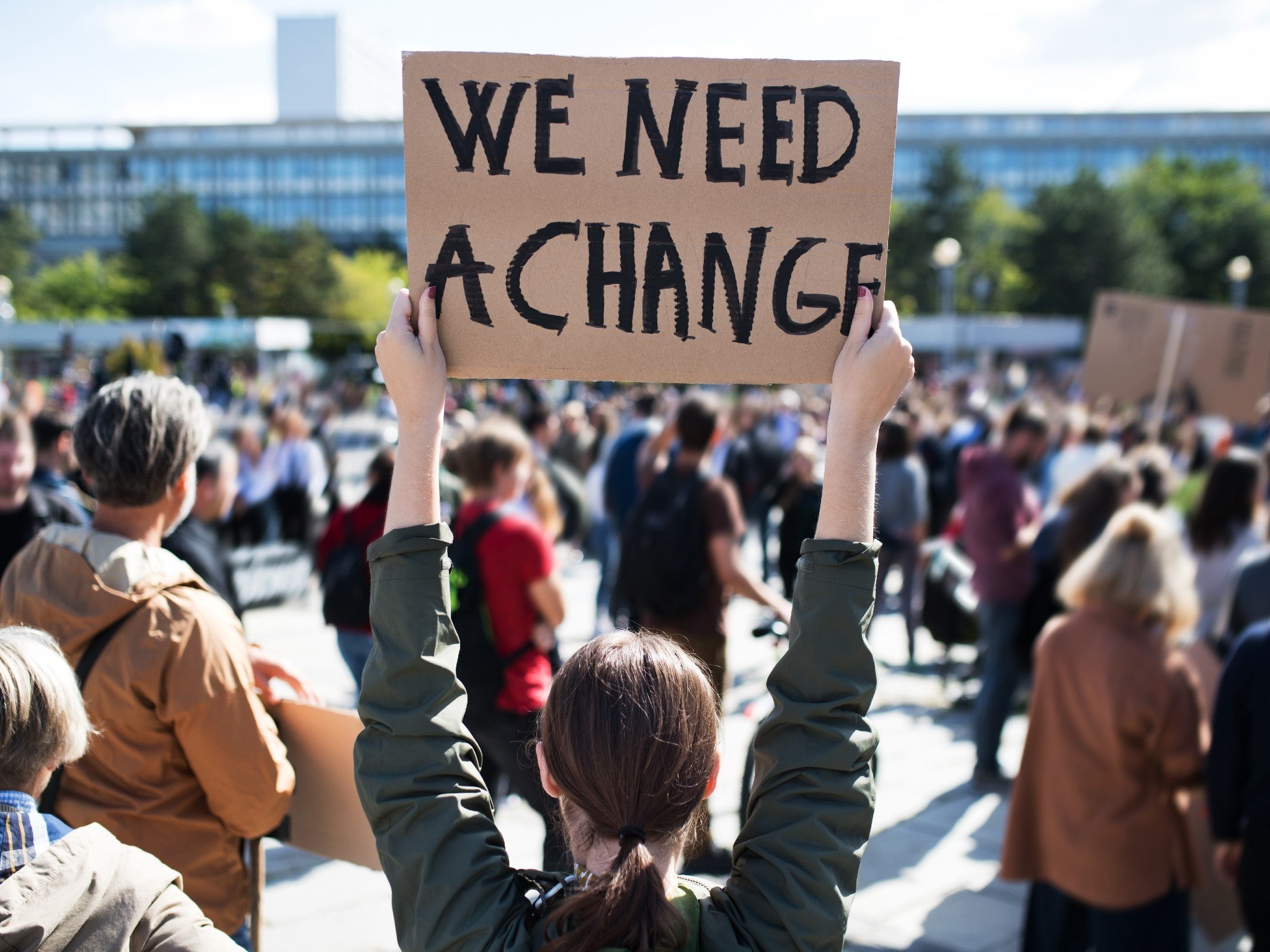The world cannot wait a moment longer to prevent uncontrollable climate catastrophe
Editorial: We are launching a petition demanding world leaders go as far as possible to stop global temperatures rising to 1.5C above pre-industrial levels: the aspiration of the landmark Paris Agreement – and the least that must be done

Your support helps us to tell the story
From reproductive rights to climate change to Big Tech, The Independent is on the ground when the story is developing. Whether it's investigating the financials of Elon Musk's pro-Trump PAC or producing our latest documentary, 'The A Word', which shines a light on the American women fighting for reproductive rights, we know how important it is to parse out the facts from the messaging.
At such a critical moment in US history, we need reporters on the ground. Your donation allows us to keep sending journalists to speak to both sides of the story.
The Independent is trusted by Americans across the entire political spectrum. And unlike many other quality news outlets, we choose not to lock Americans out of our reporting and analysis with paywalls. We believe quality journalism should be available to everyone, paid for by those who can afford it.
Your support makes all the difference.It is with a poignant, symbolic irony that the Cop26 summit opens in Glasgow, with the city struggling with half a foot of flood water disrupting everyday life – precisely the point the Insulate Britain protesters have been making during their recent activities about what will increasingly befall the planet if urgent action is not taken.
Whether directly attributable to the climate crisis or not, the flooding in Glasgow – and elsewhere in Britain – is a timely reminder that the climate emergency didn’t go away during the Covid-19 pandemic, even though the attention of the world was, understandably, distracted by the continuing impact of coronavirus.
Indeed, the sense of urgency and huge efforts expended over Covid across the world (with a few dishonourable exceptions), stands in stark contrast to the complacency and tardiness shown to the climate emergency in recent years – and yet the changes to our planet’s fragile ecosystem is an existential threat in the way that Covid, grievous as it has been, was not.
Rather than asking questions about where the money was coming from (as is so depressingly the case with the climate emergency), when faced with Covid, rich nations spent freely the equivalent of tens of trillions of dollars.
Though flawed, nations passed emergency laws and mobilised the military; international action was agreed and implemented; the resources of the private sector were devoted to finding treatments and vaccines; universities and private research institutions and companies worked together at unprecedented speed; and there were even some attempts to extend Covid assistance to developing countries – albeit too little and often too late.
The Covid crisis showed what could be done; but too often summits such as Cop26 merely serve to demonstrate how easy it is to do nothing. If the world were as serious about greenhouse gas emissions as it was about coronavirus, the money to get rid of gas boilers and the internal combustion engine would have been found; the technologies to deliver green steel and green concrete at scale would have been developed; we would be using Zoom and Teams instead of flying to meetings or so often flying away on holiday, and we’d be consuming far less meat and dairy.
Unlike in the early phase of the pandemic, we already know what needs to be done. Greta Thunberg, who has done as much as anyone to spread awareness – and, yes, righteous anger about the climate crisis – has wisely spoken up against targets for net zero decades away, and even then filled with self-deluding loopholes, invented by cynical leaders who know they won’t be around to suffer the worst consequences of their individual and collective failures.
Some may be more sincere than others, and all have had to accept the science; but, for whatever reason, the progress since the 2015 Paris Agreement has been generally disappointing. Even more depressing is the realisation that, has they acted with more determination after the first Earth Summit in Rio in 1992, the adjustments needed would have been far more gradual and far less painful for the world’s peoples.
The lesson of past dither and delay is clear: the longer the world leaves it to take serious action, the harder it will be – and the greater the risk that climate change will become not just irreversible, but worsen in catastrophic and unpredictable ways.
All of this has been foreseen, and too little has been done about it, demonstrably. Yet there is always hope.
The science has been increasingly accepted and adopted. The Independent was one of the earliest to campaign against the man-made climate crisis, and we are aiming for net zero by 2030 for our own activities.
We now launch a petition (scroll below to sign it) demanding world leaders go as far as possible to stop global temperatures rising to 1.5C above pre-industrial levels: the aspiration of the landmark Paris Agreement, and the least that must be done.
It is not too late to prevent the present climate emergency careering towards uncontrollable climate catastrophe, but the world cannot wait.
To join in our fight in helping to encourage world leaders to hit our climate targets please sign our petition below. We thank you for your support.
Join our commenting forum
Join thought-provoking conversations, follow other Independent readers and see their replies
Comments